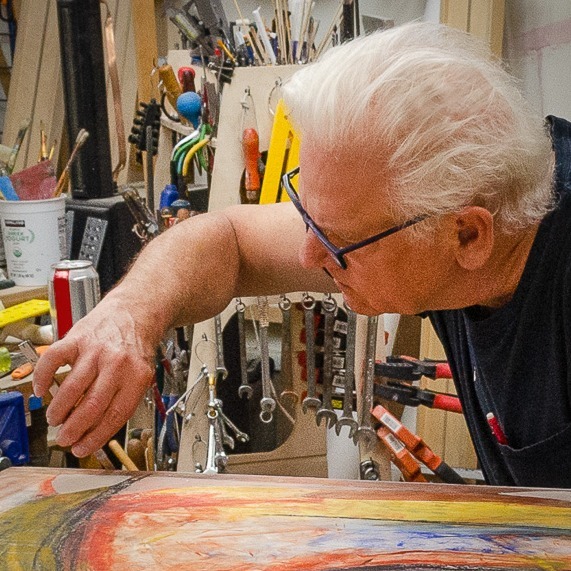As we reluctantly leave summer behind and enter the month of September, many of us Minnesotans are excited about Labor Day Weekend, the State Fair, and the kiddos going back to school. As for me? I find myself thinking about all the people jumpstarting their technology careers by participating in the variety of tech training programs that are kicking off this fall!
Prime Digital Academy just started their first ever part-time Full Stack Development program, Dream Corps TECH just opened the applications to their Target-sponsored bootcamp for Black and Latinx folks, and DEED just awarded their Tech Training Competitive Grant Winners. So, this month I want to speak directly to all the early career technology professionals who are working hard on building a career in this industry…
Here are my 6 Major Keys to Building a Meaningful & Successful Career in Tech!
🔑 KEY #1:
Know your interests as you’re establishing yourself in the tech field! Specifically, I recommend that you practice vocalizing what you care about, what you stand for, and what you’re curious about. Participate in “get to know you” sessions within your new teams and start networking in the tech community right away. Don’t be afraid to share your interests with your colleagues, friends, managers, leaders, etc. People can only help you if they’re aware of your wants and needs!
A great way to get comfortable talking about your goals and interests is by creating a script you can refer back to in conversation: “Hi! My name is ______ and I’m passionate about ________. My goals are ________ and I’d love to ________. I’m excited to continue learning from you about ________.”
🔑 KEY #2:
Identify your personal superpower. Think critically about what you’re naturally good at and familiarize yourself with what you can uniquely contribute to your teams, your friend groups, your networks, your family, and all other parts of your life. As you go through a career transition and potentially enter a new industry, you’ll want to lean on your superpowers. Although you’ll be learning new skills/domain knowledge, your superpower is something only you can naturally bring to the table.
Examples of SKILL powers: presenting, researching, learning concepts quickly, organization, project management, etc.
Examples of RELATIONAL powers: energy, charisma, emotional intelligence, comfortability, etc.
🔑 KEY #3:
Reimagine what networking looks like by focusing on lateral networking – ignore positions/titles and seek out connections with people that inspire you! Having a network of people to push your thinking, teach you new things, and expose you to concepts and topics outside of your lived experiences, is what translates to having an impactful network. Focusing on who inspires you removes the uncomfortable, transactional feeling that is often associated with networking.
When you’re in networking conversations, discuss the things you care about! Some of my closest professional connections were born out of having conversations about Grey’s Anatomy and being a Minnesota transplant. Conversations can often start off with small talk, but if you can quickly find a connection point with someone, you should lean into that shared interest or experience. A quick gut check: if you’re not finding commonalities right away, it means you should start asking more thoughtful questions! Don’t give up if it doesn’t immediately feel comfortable—stay in the conversation, ask questions that you actually want answers to, and show genuine interest.
Lastly, express gratitude to people when they impact on you. Whether it be in the moment or through a follow-up email or thank you card, directly articulate why the conversation was impactful. This is particularly important after first-time connections.
At the beginning of your career, you should schedule at least an hour per week solely devoted to relationship building. This can include meeting for virtual coffee dates, sending thoughtful emails, attending meetups/community events, identifying potential mentors, connecting with people on LinkedIn, or reconnecting with old colleagues. Making relationship building a part of your weekly routine keeps it top of mind and makes deepening professional connections that much easier.
🔑 KEY #4:
Build your own personal Board of Directors by leveraging your current and evolving network of individuals! Think closely about the people in your world – do you have enough in each bucket? Here are some examples of qualities to look for when recruiting for your personal Board of Directors:
- Provides honest feedback
- Has completely different life experiences
- Has similar life experiences
- Is a natural relationship builder
- Is technically skilled/strong
- Can mentor you
- Can sponsor/advocate for you
- Has a high risk tolerance and will push you outside your comfort zone
- Can be your thought partner
- Someone you can have fun with!
🔑 KEY #5:
Be intentional about building your personal brand. Sarah McNally, former CEO of The People Brand Company has taught me several valuable lessons over the years, with one of the most important being: Your personal brand is “a perception or feeling that describes or defines the experience of being in relationship with you.” You’ve already established a personal brand whether you realize it or not. Now it’s time to do some personal reflection and decide how to refine that brand. I recommend asking questions like: What does my manager think of me? What do my teammates think of me? What do my peers think of me? What does my company think of me?
There’s a ton of power in being self-aware and feeling confident in your personal brand. Once you know the answers to these questions, you can decide if your brand is in alignment with how you want to be perceived.
🔑 KEY #6:
Get and STAY connected to the tech ecosystem. Plug into the opportunities available to you in the professional, corporate, and technology worlds. The Minnesota Technology Association has GREAT tools you can leverage such as newsletters, blogs, and small to large scale tech learning/networking events. There are several other organizations designed to support you on your journey as a technology professional, and they are equally well-equipped to provide you with excellent learning and networking opportunities. Here are a few:
These six keys are a synthesis of the lessons I’ve learned and the challenging scenarios I’ve encountered since my transition into technology five years ago. During my first “get to know you” conversation, I answered nearly 80% of the questions a tech leader asked me with “I don’t know” or “I’m not sure.” I didn’t stumble in that conversation because I didn’t have ideas or clarity on what I was looking for; I stumbled because I didn’t know the unspoken norms of the informal “get to know you” conversation, which translated into me being inadequately prepared.
I share all of this to say that succeeding in a career in technology isn’t straightforward for everyone. There are many success methodologies in technology that are veiled or relatively inaccessible, particularly to us first generation career/college grad folks. My experience as a Black, queer woman drives my passion around disseminating some of the keys I’ve learned along the way. Please feel free to connect with me via email (jade@mntech.org) or LinkedIn to continue the conversation.





















